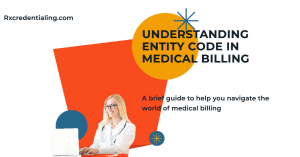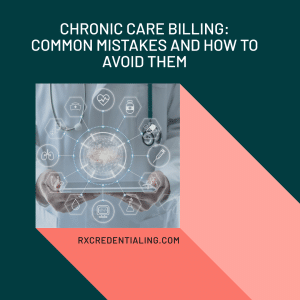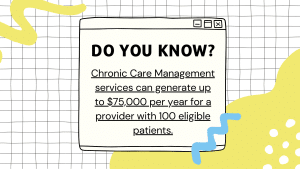Introduction
When negotiating payer contracts, it’s essential to have a clear understanding of your practice’s financial goals and objectives.
This involves assessing your current contracts, analyzing data and metrics, and preparing a compelling value proposition.
Assessing Current Contracts
Before entering into new negotiations, take the time to evaluate your existing contracts with payers. Review the reimbursement rates, fee schedules, and any limitations or exclusions. Identify any pain points or areas where you feel your practice is not adequately compensated for its services.
Setting Goals and Objectives
Define your goals and objectives for the negotiation process. Consider factors such as desired reimbursement rates, contract terms, and the inclusion of additional services or procedures. Clearly outlining your objectives will help you stay focused during negotiations and increase your chances of achieving a favorable outcome.
Gathering Data and Analyzing Metrics
To negotiate from a position of strength, gather relevant data and analyze key metrics. Look at your practice’s patient volume, payer mix, and revenue generated from different procedures. Identify your most valuable services and highlight their importance when presenting your value proposition.
Preparing for Negotiations
Thorough preparation is crucial for successful negotiations. Familiarize yourself with the payer’s reimbursement policies, fee schedules, and contract terms. Research industry benchmarks and compare them to your current rates. Anticipate potential objections or counterarguments and develop persuasive responses.
Crafting a Strong Value Proposition
Your value proposition is the foundation of your negotiation strategy. Clearly communicate the unique value your practice offers, emphasizing the quality of care, patient satisfaction, and cost-effectiveness. Highlight any specialized services, advanced technologies, or innovative approaches that set your practice apart from competitors.
Negotiation Tactics and Strategies
During negotiations, employ various tactics and strategies to maximize your leverage. Start with a collaborative approach, focusing on shared goals and win-win outcomes.
Use active listening to understand the payer’s concerns and address them effectively. Consider negotiating on multiple fronts, such as reimbursement rates, contract terms, and the inclusion of new services.
Evaluating Proposed Contracts
Carefully evaluate any proposed contracts from payers. Scrutinize the reimbursement rates, fee schedules, and any additional terms or conditions.
Pay attention to any potential pitfalls or clauses that may impact your revenue or practice operations. Compare the proposed contract with your objectives and assess whether it aligns with your desired outcomes.
Seeking Legal Assistance
If you encounter complex legal issues or need guidance during negotiations, consider seeking assistance from healthcare contract attorneys. They can provide valuable insights, review contracts, and help you navigate legal complexities, ensuring that your practice’s interests are protected.
Implementing Contract Changes
Monitoring and Reviewing Contracts
Negotiating payer contracts is an ongoing process. Regularly monitor and review your contracts to ensure that the agreed-upon terms are being upheld. Keep track of reimbursement rates, claim denials, and any issues that may arise. Stay proactive and address any discrepancies or concerns promptly.
Conclusion
Negotiating payer contracts that increase your practice revenue requires careful planning, preparation, and effective communication. By assessing your current contracts, setting clear goals, and crafting a compelling value proposition, you can enter negotiations with confidence.
Utilize negotiation tactics and strategies while evaluating proposed contracts critically. Seek legal assistance when needed, and implement changes to contracts with precision.
Regular monitoring and review will help you optimize your agreements and ensure a favorable financial outcome for your practice.
Frequently Asked Questions
1. Can I negotiate payer contracts even if I have a small practice?
Absolutely! Regardless of the size of your practice, negotiating payer contracts is essential.
By advocating for fair reimbursement rates and favorable contract terms, you can enhance your practice’s financial viability and sustainability.
2. How do I determine the desired reimbursement rates for negotiations?
When determining desired reimbursement rates, consider factors such as the cost of providing services, industry benchmarks, and your practice’s financial goals.
Analyze data, evaluate your expenses, and aim for rates that adequately compensate your practice for the quality care it delivers.
3. What if a payer refuses to negotiate or offers unfavorable terms?
If a payer refuses to negotiate or presents terms that are not in line with your practice’s objectives, it may be necessary to reassess your relationship with that payer.
Consider whether continuing to participate in their network aligns with your practice’s financial interests.
4. How often should I review my payer contracts?
It is recommended to review your payer contracts annually or whenever significant changes occur in your practice or the healthcare industry.
Regular review ensures that your agreements remain favorable and aligned with your practice’s evolving needs.
5. Is it advisable to have legal assistance during contract negotiations?
While not mandatory, having legal assistance can be invaluable during contract negotiations.
Healthcare contract attorneys specialize in healthcare law and can provide expertise and guidance to protect your practice’s interests and navigate any legal complexities.
























